Girls want more decisionmaking power over their own lives and in their communities, be it in the realm of education, economic independence, health, or physical and emotional safety. This is one of the main messages coming out of our recent research exploring girls’ agency – with girls – across five countries, conducted as part of the Learning and Action Alliance for Girls’ Agency (LAAGA). This does not come as a surprise. In fact, over the past decade, a growing body of research, programming, policies and international funding, has sought to strengthen adolescent girls’ agency, especially in the Global South. But how do girls themselves define agency? And what can we learn from and with them about exercising that agency, even under harsh economic, political, and climate-related conditions?
This summer, in collaboration with the Forum for African Women Educationalists (FAWE) Uganda, LAAGA convened policy makers, community organizations, researchers, school administrators, teachers, and students to share our research, engage in dialogue and begin to collectively identify actions that support girls’ agency. During the convening, we shared insights from our study carried out with girls living in a nomadic community in Abim. Abim is a region characterized by arid conditions, insecurity related to cattle rustling, and a strong patriarchal system leading to early pregnancies, marriages, and sexual violence. School enrollment in the district is roughly half that of the national average (42% vs 80%), and the literacy rate among girls is less than one-third the national average (23% vs 72%).
Through focus-group discussions, community mapping, and proverb analysis, the girls in Abim explored the concept of agency. They defined this as the power to –despite the many challenges that they face dream, decide, and drive their destiny, and the importance of this power to their lives. They drew maps and shared stories of where they exercise agency, identified supporters and detractors, and examined the ways in which common sayings or expressions influence them. Some of the initial findings from this broader research project presented during LAAGA’s engagement events in Uganda show that:
- Girls define agency in their own terms. Through methods that center girls’ voices, LAAGA researchers delved into how girls understand agency. In the Karamoja region, they use the term “Akemkem” to refer to brave and hardworking women. Girls identified agency-related skills such as self-confidence, commanding respect, decision making, goal-setting, determination, perseverance, and resilience. Girls also noticed that skills alone were not enough; opportunities to achieve economic independence and attain leadership positions link to the agency-related skills that characterized “Akemkem” in their communities.
- Agency is situational and depends on safe spaces and individuals. Girls linked agency to conditions that allowed them to fully be themselves. In Abim, schools were identified as the best places for girls to exercise their agency, because girls reported they generally help them grow intellectually and emotionally, while also facilitating access to material needs such as meals and clean drinking water. Girls also recognized the relevance of safe spaces as catalyzers of interactions with supportive people, and agency role models, such as mothers, peers, religious leaders, and senior women teachers. However, our research also found that no environment was identified as fully safe or friendly for girls in exercising their agency. In some school settings (and on the way to and from school), girls faced harassment, the use of derogatory language, and sexual violence from boys and men, which they described as limiting their agency. These two faces of schooling provide evidence for the need to strengthen schools – and their surroundings – as safe spaces.
- The climate crisis and poverty constrain agency. And girls know it. Our research in Uganda shows that families face hardship in providing adequate food, health care and education for their children, especially girls. Subsistence farming is the primary livelihood, yet it is affected by the climate crisis-induced prolonged drought, and local conflict and insecurity. Girls often carry the weight of the climate crisis and poverty, and they factor this into their dreams, decisions, and actions. Girls who participated in LAAGA’s research described how the climate crisis and poverty lead them to align their decisions in ways they felt could address those challenges, for example, by entering child labor, marrying earlier, or migrating in search of opportunities in less climate affected regions.
- Agency can be a communal mode of survival. Mothers, grandmothers, aunts, and other female relations were pointed out by girls as being crucial to their agency. Often, these are the family members who not only fight for their right to education and reject early marriage, but also take action to ensure the family has food and other necessities. It is in this context, that LAAGA wonders about the distinction between agency and survival, and whether agency is a mode of survival. As LAAGA continues to learn with girls, we are deepening our understanding of agency as a multi-dimensional concept, experienced across a spectrum linked to the conditions that surround women and girls.
LAAGA’s work builds on collaboration between girls, communities, educators, researchers, practitioners, and policymakers. Our research embraces a critical and iterative action-reflection approach, and these connections and conversations inform our future work and the development of recommendations for policies that support girls’ agency, including:
- Working with and through existing structures, such as schools, community organizations, and faith-based communities;
- Strengthening collective knowledge and capacity by continuing to weave relationships among diverse actors;
- and embracing a multi-sectoral and multi-level approach that considers the role of health, safety, and economic opportunity in advancing girls’ agency.
Above everything, LAAGA’s recommendation is to center the voices of those whose are the most knowledgeable and experienced about girls’ agency: girls themselves.
The Brookings Institution is committed to quality, independence, and impact.
We are supported by a diverse array of funders. In line with our values and policies, each Brookings publication represents the sole views of its author(s).

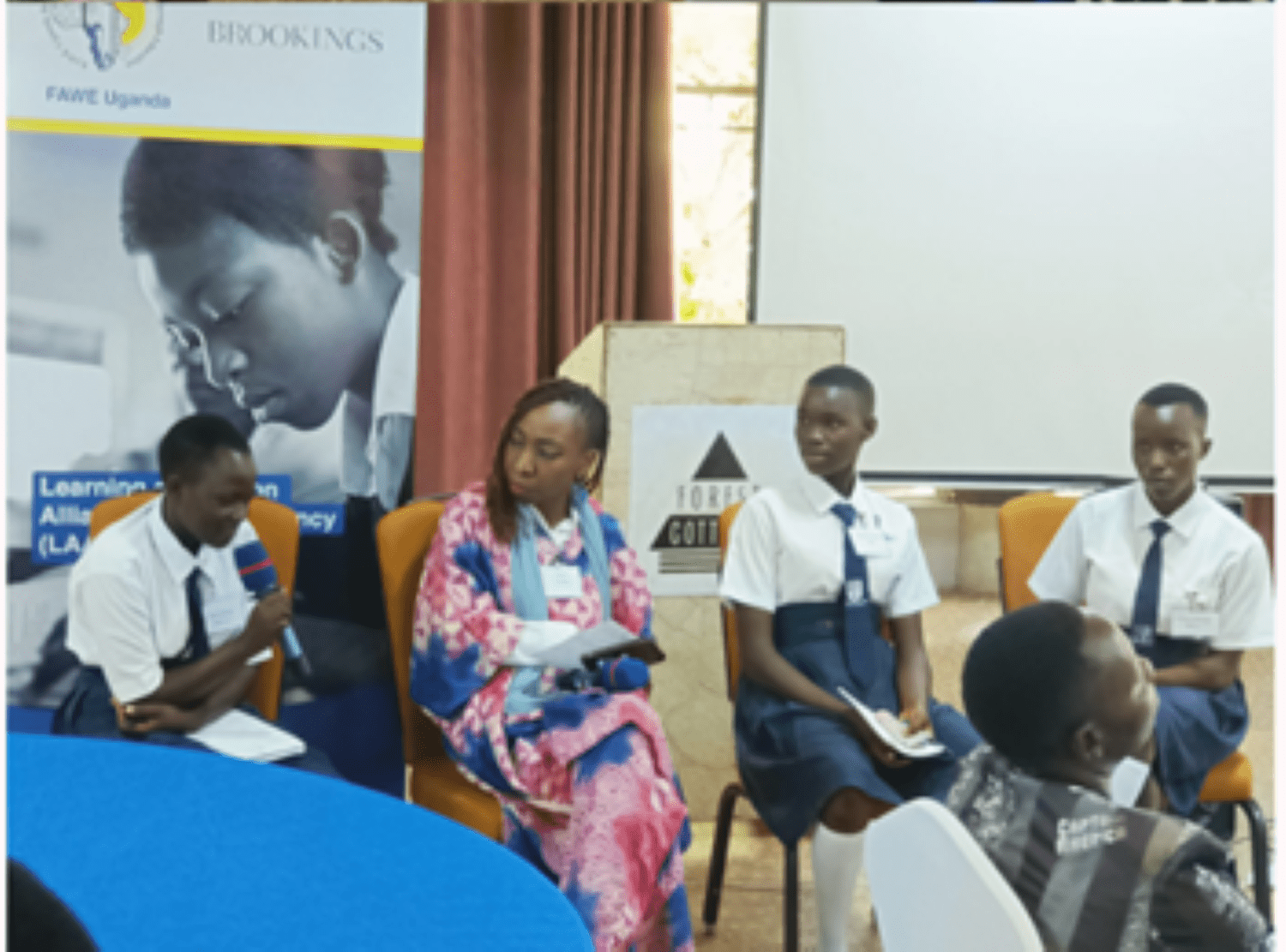
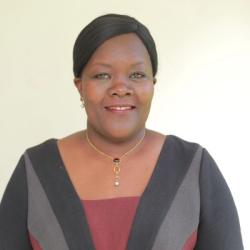
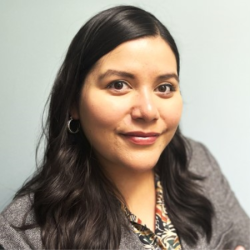
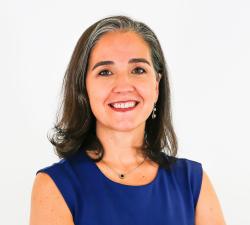

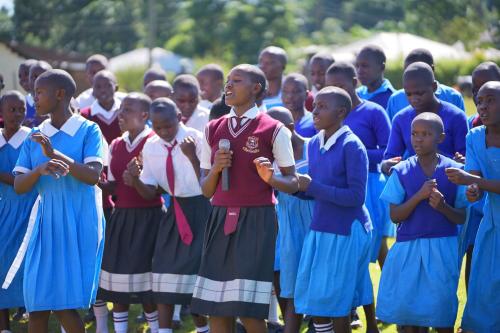
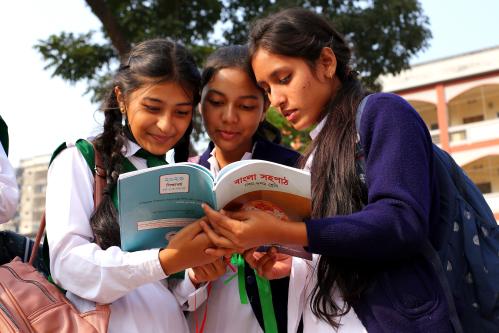


Commentary
Dream, decide, drive: How girls in Uganda define agency
August 23, 2024